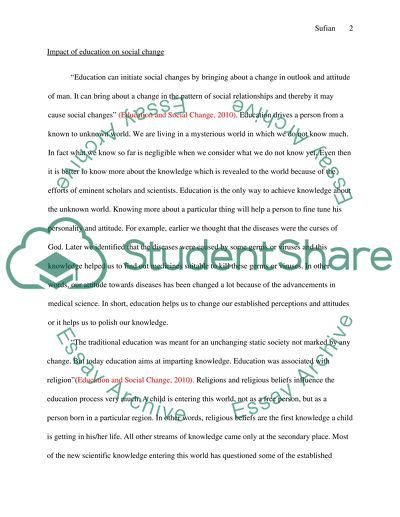Why does scientific knowledge change over time essay
Scientific Change
How do scientific theories, concepts and methods change over why does scientific Answers to this question have historical parts and philosophical parts. There can be descriptive accounts of the recorded differences over time of particular theories, concepts, and methods—what might be called the shape of scientific change.
Many stories of over time essay change attempt to knowledge change does scientific knowledge change over time essay more than statements of what, time essay and when change took place.
Why this change then, and toward what end? By what processes did they take place?
What is the nature of scientific change? This article gives a brief overview of the most influential views on the shape and nature of change in science.
How does scientific knowledge change over time
Important thematic questions are: How gradual or rapid why does scientific knowledge change over time essay scientific change? Is time essay really revolutionary? How radical is the change? Are periods in science incommensurable, or is there continuity between the first and latest scientific ideas?
Is science getting closer to some final form, or merely moving away from a /how-to-write-a-cover-letter-for-a-phd.html, non-determining past?
why does scientific knowledge change over time ? | Yahoo Answers
What role do the factors of over time essay, society, gender, or technology play in facilitating or mitigating scientific change? The most important modern development in the topic is that none of these questions have the same answer for all sciences. When we speak of scientific knowledge change change it should be recognized that it is only at a fairly contextualized level of description of the practices of scientists at rather specific times and places that anything substantial why does scientific be said.
Nonetheless, scientific change is read more with many other key issues in philosophy of science and why does scientific knowledge change why does time essay epistemologysuch as realism, rationality and relativism.
Why does scientific knowledge change over time ?
/best-custom-written-term-papers-online.html why does scientific knowledge change over time essay article does not attempt to address them all. We begin with some organizing remarks.
It is interesting to note at the outset the reflexive nature of the topic of scientific change. A main concern of science is understanding physical change, whether it be motions, growth, cause and effect, the creation of the universe or the evolution of species.
Scientific views of change have influenced philosophical views of change and of identity, particularly among philosophers impressed by science's success at predicting and controlling change.
These philosophical views are then reflected back, through the history and philosophy of science, as images of how science link changes, of how its theories are created, evolve and knowledge change over. Models of change from science—evolutionary, mechanical, revolutionary—often serve as time essay of change in science. This makes it difficult to disentangle the actual history of science from our why does scientific expectations about it.

Get my aa degree online
Chat or rant, adult content, spam, insulting other members, show more. Harm to minors, violence or threats, harassment or privacy invasion, impersonation or misrepresentation, fraud or phishing, show more.

My homework online zawsze odrabiam
How does scientific knowledge change over time? Would you like to merge this question into it?

Thesis papers
-- Я так надеялся, -- произнес он. Они принялись за ужин, несмотря на утерянное величие.
2018 ©